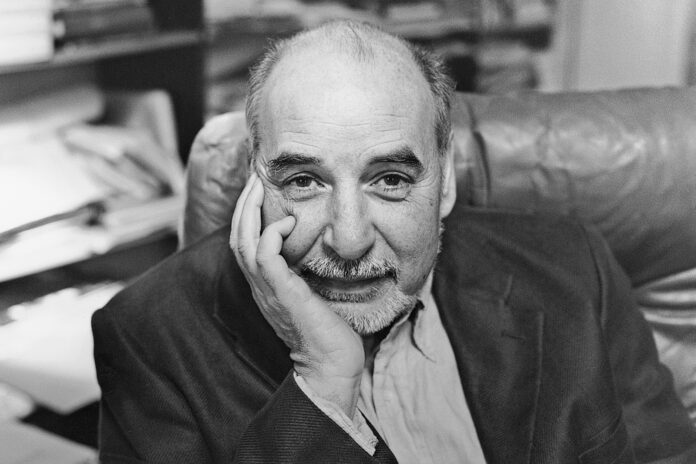BEN JELLOUN TAHAR is a Moroccan literary giant known for his profound novels and social commentary. Discover his journey, achievements, and impact on global literature.
BEN JELLOUN TAHAR: Life, Literature, and Legacy
BEN JELLOUN TAHAR, born in Morocco, has become one of the most significant literary voices of the modern Arab world. Writing primarily in French, he bridges cultural, linguistic, and ideological divides through profound stories that blend reality with fiction, history with personal memory, and activism with artistry.
Early Life and Education
Birthplace and Family Background
Tahar Ben Jelloun was born on December 1, 1944, in Fès, Morocco, into a traditional Moroccan family. His early childhood was marked by the vibrant cultural and historical context of his homeland, heavily influenced by Sufi spirituality, colonial history, and rich oral traditions.
Early Influences and Literary Interests
Growing up in Tangier, Ben Jelloun was captivated by storytelling, particularly Moroccan folktales and French literature. The dual cultural influence shaped his early curiosity in language, identity, and philosophical ideas, which would later emerge as central themes in his work.
Academic and Intellectual Formation
Studies in Philosophy and Psychology
Ben Jelloun studied philosophy at the University of Mohammed V in Rabat, but due to Arabization policies in Morocco, he moved to France in 1971 to continue his education. He earned a doctorate in social psychiatry from the University of Paris, an experience that deeply enriched his literary sensitivity to human psychology.
Migration to France and Cultural Shift
Relocating to France was both a personal and professional turning point. The exposure to French intellectual life, the experience of exile, and life as an immigrant became core themes in his novels and essays.
Literary Debut and Initial Recognition
First Publications
Ben Jelloun’s early poems appeared in Moroccan literary journals. His prose debut, “Harrouda” (1973), marked his entrance into the world of serious literature. The work reflected a postmodern approach, challenging narrative conventions and offering psychological depth.
Language Choice – Writing in French
Choosing to write in French, the language of the former colonizer, was controversial yet strategic. Ben Jelloun aimed to reach a broader audience while redefining the language to suit North African sensibilities.
Major Works and Literary Style
Overview of Notable Novels
Some of his most acclaimed works include:
- The Sand Child (1985)
- The Sacred Night (1987)
- This Blinding Absence of Light (2001)
These books showcase his deep engagement with themes of gender, power, and identity.
Recurring Themes: Identity, Exile, and Freedom
Ben Jelloun’s novels often portray marginalized characters grappling with social taboos, state oppression, or personal trauma. His narrative voice—lyrical, introspective, and symbolic—offers a window into human resilience.
The Sacred Night – A Breakthrough Novel
Plot Summary
“The Sacred Night” (La Nuit sacrée), a sequel to The Sand Child, follows the journey of a girl raised as a boy to preserve family honor in a patriarchal society. This haunting narrative of gender transformation, personal awakening, and self-determination is laced with poetic prose and layered symbolism. It showcases Ben Jelloun’s skill in weaving magical realism with poignant social critique.
Awards and Global Recognition
In 1987, The Sacred Night won the prestigious Prix Goncourt, France’s top literary award, making Ben Jelloun the first Maghrebi writer to receive it. This accolade catapulted him into the international literary spotlight, affirming his role as a voice for the voiceless and a chronicler of North African life.
In 1987, The Sacred Night won the prestigious Prix Goncourt, France’s top literary award, making Ben Jelloun the first Maghrebi writer to receive it. This accolade catapulted him into the international literary spotlight, affirming his role as a voice for the voiceless and a chronicler of North African life.
Contributions to Journalism and Social Commentary
Opinion Columns and Essays
Beyond fiction, Ben Jelloun has written extensively for leading newspapers like Le Monde and La Repubblica. His essays tackle pressing issues such as immigration, Islamophobia, and post-colonial identity. He articulates complex realities with clarity and compassion, often offering a bridge between Western and Islamic perspectives.
Tackling Racism, Islamophobia, and Human Rights
His book Racism Explained to My Daughter (1998) is a profound yet accessible discussion on racism, written as a dialogue with his young daughter. Translated into over 25 languages, it’s a staple in schools and libraries worldwide.
Philosophy and Ideological Views
Humanism and Universalism
Ben Jelloun is a staunch humanist, advocating for tolerance, dignity, and justice. His works transcend ethnic or religious boundaries, focusing on universal human experiences—loss, love, suffering, and hope.
Views on Islam and Secularism
While deeply respectful of his Muslim heritage, Ben Jelloun promotes secularism and freedom of thought. He critiques both religious extremism and Western misconceptions about Islam, striving to foster mutual understanding.
Role in Moroccan and Francophone Literature
Literary Bridge Between Cultures
Ben Jelloun is often seen as a literary bridge between Morocco and France, Islam and the West, tradition and modernity. His writings bring North African realities into the global literary conversation, giving depth and nuance to a region often misunderstood.
Recognition in the Arab World
Despite writing in French, Ben Jelloun commands respect in the Arab literary scene. His themes resonate deeply with Arab readers, and his translated works have found a substantial audience across the Middle East.
Awards and Honors
Prix Goncourt and Other Accolades
In addition to the Prix Goncourt, Ben Jelloun has received numerous literary prizes and distinctions, including:
- International IMPAC Dublin Literary Award (shortlisted)
- UNESCO Prize for Literature
- Commander of the Legion of Honour (France)
Academic and Governmental Honors
He holds honorary doctorates from universities across Europe and North America and has served on literary juries and advisory councils, influencing cultural policy and education.
Personal Life and Privacy
Family and Public Image
Despite his fame, Ben Jelloun maintains a relatively low public profile regarding his private life. He’s a dedicated father and often speaks of family as both a literary inspiration and personal sanctuary.
Life Between France and Morocco
Ben Jelloun splits his time between Paris and Tangier, drawing creative energy from both cities. This dual existence embodies his literary persona: deeply rooted in Moroccan culture yet globally fluent.
Influence on Contemporary Writers
Mentorship and Literary Inspiration
Many young North African writers cite Ben Jelloun as a mentor and role model. His success has paved the way for others to write in French or Arabic and address controversial topics with courage.
Legacy in Modern Francophone Literature
Ben Jelloun is part of a powerful tradition of Francophone literature from the Maghreb, along with authors like Assia Djebar and Kateb Yacine. His works are studied in universities worldwide, shaping literary discourse and cultural identity.
Critical Reception and Academic Studies
Literary Criticism
Critics praise Ben Jelloun for his lyrical style, narrative complexity, and ethical engagement. Some, however, challenge his choice to write in French or question the authenticity of his depictions.
Inclusion in University Curricula
His novels and essays are regularly taught in comparative literature, postcolonial studies, and Francophone literature programs, especially in Europe and North America.
Adaptations of His Work
Film and Theatre Adaptations
Several of his works have been adapted for the screen and stage. The Sand Child, in particular, has inspired theatrical productions in France, Morocco, and Canada, each exploring gender and identity in unique ways.
Literary Translations Across the Globe
Ben Jelloun’s books have been translated into more than 40 languages, making him one of the most globally read Moroccan authors. His translators work closely to preserve the nuance and rhythm of his prose.
Cultural Impact and Public Engagement
Participation in Literary Festivals
A frequent guest at global literary events—from the Hay Festival to the International Book Fair of Casablanca—Ben Jelloun uses these platforms to champion literary freedom and social justice.
Media Appearances and Interviews
He’s a regular presence on cultural programs and in literary magazines, where he discusses politics, literature, and the role of art in society.
Challenges and Controversies
Criticism in Morocco and Abroad
While celebrated, Ben Jelloun has also faced criticism for elitism, Western leanings, or alleged misrepresentations of Moroccan society. However, he remains unapologetically committed to telling stories that challenge the status quo.
Debates on Identity Politics
His writings often spark debate on feminism, sexual identity, and cultural assimilation—themes that provoke thought and, at times, opposition in conservative circles.
FAQs About BEN JELLOUN TAHAR
1. What is Ben Jelloun’s most famous book?
His best-known novel is The Sacred Night, which won the Prix Goncourt in 1987.
2. Does Ben Jelloun write in Arabic or French?
He primarily writes in French, but his works are widely translated into Arabic and other languages.
3. What themes does Ben Jelloun explore?
His books often explore identity, gender, exile, colonial history, and psychological trauma.
4. Is Ben Jelloun still alive?
Yes, as of 2025, Tahar Ben Jelloun is alive and occasionally publishes essays and new works.
5. Why is Ben Jelloun important in world literature?
He bridges cultures, challenges taboos, and gives voice to marginalized individuals, making him a vital figure in global literature.
6. Has he ever taught or worked at a university?
Yes, he has lectured and held honorary positions at various institutions, including in France and the U.S.
The Enduring Voice of BEN JELLOUN TAHAR
Tahar Ben Jelloun stands as a beacon of intellectual courage, poetic expression, and cultural dialogue. His legacy isn’t just about the stories he tells, but the doors he opens—between languages, ideologies, and human experiences. Whether tackling exile, racism, or inner turmoil, his words illuminate the struggles and beauty of being human.


